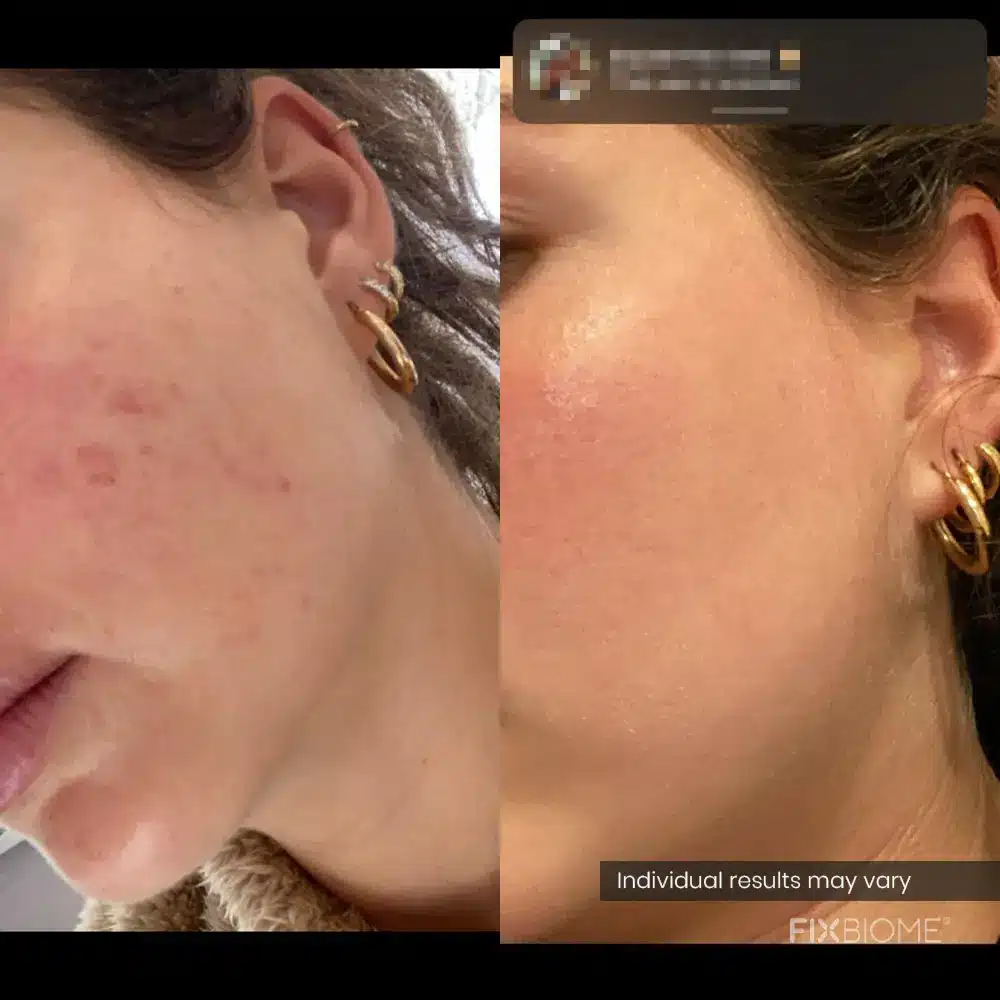What’s the best probiotic for SIBO
and should you take one?
As seen on
We asked our team of doctors and naturopaths what they thought about SIBO and probiotics.
Probiotics have become increasingly popular in recent years. However, research is ongoing. Although they can be very beneficial in some cases, many experts agree they are being over and misused.
SIBO (small intestinal bacterial overgrowth) is a condition where probiotics may be particularly harmful if misused and there are a few things to consider before deciding which one to take. There’s a risk they may cause a worsening of symptoms or relapse in some people.
Here are some things to consider if you’re looking for a probiotic for SIBO:
7 things to consider when taking a probiotic for SIBO
1. The state of your migrating motor complex
SIBO can occur for many reasons, but a leading cause (often with an underlying cause itself) is a lagging migrating motor complex.
The MMC is the wave-like motion that sweeps through our small intestine roughly every 90 minutes.
Think about the migrating motor complex like the house cleaner for the small intestine.
The migrating motor complex often doesn’t function properly in people with SIBO. This can contribute to why they developed the condition in the first place and why they couldn’t get their bacterial load in the small intestine back to normal levels.
The migrating motor complex can become damaged or lag for a range of reasons. These include immune conditions, an event of food poisoning, certain drugs, surgeries, PPI use, structural damage to the gut lining, a history of eating disorders, poor diet, lack of physical activity, surgery and a whole list of other reasons.
A lagging MMC can cause issues with probiotics.
If you have a slow or damaged migrating mirror complex, the probiotics you take (which are live bacteria) have a higher chance of staying in the small intestine and not being pushed downstream. That can lead to a risk of repopulating or further populating the small intestine if your MMC isn’t functioning correctly.
Simply put, the bacteria you introduce might not get to where you intend or achieve what you want them to.
What to do instead?
Instead, those with SIBO might want to consider something that either 1) enhances the MMC or 2) can influence the balance of “good” bacteria via a different mechanism (more on this later).
Things that influence the MMC and passage through the gut are known as prokinetics. They can be either drugs or natural ingredients you can find in some supplements like Fix No1, Fix No2 and Gut Fix or the FixBIOME system.
A prokinetic refers to a type of drug or natural ingredient that promotes travel through the gastrointestinal tract and keeps the gut pushing things downstream.
They are mainly used for treating motion problems (like a slow MMC) caused by various conditions and gastroesophageal reflux disorders.
A natural alternative to prokinetic drugs are things like ginger (also known as ginger rhizome), marshmallow (not the fluffy sweet kind but the kind known as Althea officinalis L.) and pepperment oil.
2. Probiotics and the risk of retriggering symptoms
Nothing is worse than finally getting your bacteria levels or symptoms under control, only to take a probiotic and be back at square one. Here at FixBIOME, our doctors and naturopaths have seen that happen many times before or after the introduction of a probiotic, so exercise caution.
3. The evidence for the use of probiotics for the treatment of SIBO
Although some evidence suggests probiotics may be helpful in different circumstances, no studies have found that probiotics can be used for the successful treatment of SIBO.
According to the scientific literature, antibiotics and natural antimicrobials are what have been shown to be the most effective methods for treating SIBO.
If you’re looking for the most studied drug treatment method for SIBO, visit your doctor and speak to them about antibiotic treatment options.
The FixBIOME system doesn’t just include the most studied ingredients for SIBO treatment but has many other ingredients that promote the rebalancing and functioning of the gut as a whole.
Antibiotics for SIBO pros and cons
Won’t work for everyone
Natural antimicrobials for SIBO pros and cons
Shown to be very effective in treating SIBO in studies
Studies have found they can be as effective as the goldstandard drug Rifaxamin
Provide other benefits besides just killing off bacterial overgrowth
Can help to support the balance of ‘good bacteria’
Can help support the gut’s daily movement
Often cheaper than the drug for the amount required
Great option for antibiotic non-responders
Both a great first-line or second-line treatment if you face relapse post antibiotics treatment
Not all supplements are created equal
Ingredients need to be optimised for dispersion along the gut, not absorption into the blood
The source of the ingredient matters to its effectiveness
The active component of the listed ingredient needs to be considered by the brand in the formulation
Common for products to skip the stabilisation process
Particle size of ingredients matters and effect the dosage and potency required
Need to be tested adequately for active components before being bottled by the company
Won’t work for everyone
4. The structural integrity of the gut
When someone has SIBO, there is constant stretching from the gas build-up in the small intestine. Unlike the large intestine, the small intestine was not designed to be stretched like that.
The small intestine’s walls contain tight junctions that act like a very selective draw bridge, deciding what to let out of the gut and into the bloodstream.
When functioning correctly, your tight junctions let things like nutrients out and keep waste in. When someone has SIBO, that constant stretching can cause the tight junctions to become loose.
Your gut also contains mucus that protects the gut lining from bacteria by promoting their clearance and separating them from the epithelial cells (which can be found in the gut). This mucus helps inhibit inflammation or irritation from bacteria.
With SIBO studies observed this can become thin and compromised.
Gut Fix was designed with ingredients to help speed up the 48-hour cell turnover of your gut lining and promote structural integrity. It includes clinically proven ingredients to help repair tight junctions while improving mucus content in your GI tract. These ingredients have also been shown to help with stimulating nerve endings to help further boost mucus secretion. That means when the time comes to introduce a probiotic the risk of bacteria irritating your gut lining further may be reduced.
5. An alternative natural option for SIBO
Antimicrobials remain the most studied natural option proven to treat SIBO if you’re looking for a natural way. Studies have even found them to be as effective in the treatment of SIBO as the most recommended and successful drug and they may have other benefits. FixBIOME system contains the most studied ingredients for the treatment of SIBO.
6. You can support and encourage beneficial bacteria growth without the need for a probiotic
You can review the research on the ingredients in the FixBIOME system by going here: FixBIOME Shop – Research
7. SIBO and histamine intolerance
Probiotics can be particularly risky when it comes to histamine intolerance. Some probiotics can potentially worsen histamine intolerance symptoms due to their histamine-producing properties.
Reviews
Hear
what our
customers
have to say
Source:
1 Ginger rhizomes (Zingiber officinale): A spice with multiple health beneficial potentials
2 Alternative Treatments for Minor GI Ailments
3 Peppermint Oil
4 Role of Glutamine in Protection of Intestinal Epithelial Tight Junctions
5 Aqueous extracts and polysaccharides from Marshmallow roots (Althea officinalis L.): Cellular internalisation and stimulation of cell physiology of human epithelial cells in vitro
6 Glycyrrhiza glabra Root
7 Potential Implications of Citrulline and Quercetin on Gut Functioning of Monogastric Animals and Humans: A Comprehensive Review
8 A Systematic Review of Rhubarb (a Traditional Chinese Medicine) Used for the Treatment of Experimental Sepsis
9 Rheum officinale
10 Gut Microbial Diversity in Rat Model Induced by Rhubarb
11 Dietary Quercetin Increases Colonic Microbial Diversity and Attenuates Colitis Severity in Citrobacter rodentium-Infected Mice
12 Coptidis Rhizoma: a comprehensive review of its traditional uses, botany, phytochemistry, pharmacology and toxicology
13 Effects of Berberine on the Gastrointestinal Microbiota
14 Leaf extract of Azadirachta indica (neem): a potential antibiofilm agent for Pseudomonas aeruginosa
15 Effect of aqueous extract from Neem (Azadirachta indica A. Juss) on hydrophobicity, biofilm formation and adhesion in composite resin by Candida albicans
16 Biofilms
17 Neem (Azadirachta indica): Prehistory to contemporary medicinal uses to humankind
18 Therapeutics Role of Azadirachta indica (Neem) and Their Active Constituents in Diseases Prevention and Treatment
19 Medicinal properties of neem leaves: a review










